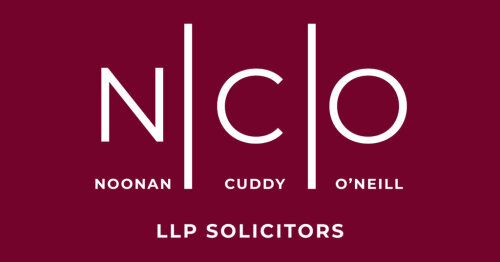Best Brain Injury Lawyers in Loughrea
Share your needs with us, get contacted by law firms.
Free. Takes 2 min.
List of the best lawyers in Loughrea, Ireland
About Brain Injury Law in Loughrea, Ireland
Brain injury law in Loughrea, Ireland, covers legal issues surrounding traumatic and acquired brain injuries due to accidents, medical negligence, assaults, or unsafe conditions. These injuries often have long-term effects on physical, emotional, and cognitive well-being. Legal cases may involve seeking compensation for medical costs, rehabilitation, lost income, and quality of life changes. Loughrea operates under Irish national law, including personal injury, negligence statutes, and specific protections for vulnerable individuals. The complexity of brain injury cases makes it important for affected persons and their families to understand their rights and legal options.
Why You May Need a Lawyer
Engaging a lawyer after a brain injury can be critical to securing fair compensation and navigating complex laws. Common scenarios where legal support is necessary include:
- Accidents at work, road traffic collisions, or public place incidents causing brain injury
- Disputes with insurance companies over compensation
- Medical negligence claims where improper care led to brain injury
- Issues surrounding capacity and decision-making for those with brain injuries
- Securing support for ongoing care and rehabilitation
Lawyers can help gather evidence, negotiate settlements, handle court procedures, and ensure your best interests are represented throughout the legal process.
Local Laws Overview
Brain injury claims in Loughrea are governed by Irish tort law, especially the Civil Liability and Courts Act 2004 and the Statute of Limitations Act 1957. Key points include:
- Time Limits: Generally, you must begin a personal injury claim within two years of becoming aware of your injury.
- Compensation: Courts consider medical costs, pain and suffering, future care, and economic loss in awarding damages.
- Assessment Board: Most claims first go to the Personal Injuries Assessment Board (PIAB) before court action is possible.
- Capacity: If a person with a brain injury cannot manage their legal affairs, a representative known as a "next friend" or a court-appointed decision maker may act on their behalf.
- Liability: You must show that another party’s negligence, breach of duty, or wrongful act caused the brain injury.
These laws aim to protect the rights of those with brain injuries and ensure they have avenues for redress and support.
Frequently Asked Questions
What should I do first if I suspect a brain injury due to an accident in Loughrea?
Seek immediate medical attention, keep records of your injuries and any related expenses, and contact a solicitor familiar with brain injury claims as soon as possible.
How long do I have to make a brain injury claim?
Typically, claims must be started within two years of the injury, but there may be exceptions if the injury was not immediately apparent or if the affected person lacks capacity.
Can I claim compensation if the accident was partly my fault?
Yes, Ireland operates under contributory negligence rules. You may receive reduced compensation if you share some responsibility for the accident.
What types of compensation are available?
You can claim for medical expenses, loss of earnings, costs of future care or rehabilitation, pain and suffering, and loss of companionship or services for family members.
Does my case have to go to court?
Most cases must be assessed by the Personal Injuries Assessment Board first. Many are settled without court proceedings, but some complex cases may require a court hearing.
What evidence is needed for a brain injury claim?
Medical records, accident or incident reports, witness statements, photographic evidence, and documentation of expenses are important for supporting your claim.
Who pays the legal fees?
Many personal injury solicitors offer “no win, no fee” agreements. Costs may be deducted from your compensation if your case is successful. Your solicitor will explain the terms before proceeding.
What if the injured person cannot make decisions about their claim?
A court may appoint a representative or a “next friend” to act in the best interests of the injured person throughout the legal process.
Can I seek help if I am not sure negligence was involved?
Yes, a solicitor can help assess whether negligence or breach of duty may have contributed to the injury and advise on the strength of your case.
Are there organisations in Loughrea that can help me?
Yes, support groups, legal aid services, and medical professionals in Loughrea and nationwide can assist with the practical and legal issues arising from brain injuries.
Additional Resources
Below are some useful resources and organisations for individuals seeking help with brain injury in Loughrea, Ireland:
- Acquired Brain Injury Ireland - Support, advocacy, and information services for brain injury survivors
- Personal Injuries Assessment Board (PIAB) - The statutory body that handles most personal injury claims assessments
- Citizen’s Information Centre - Provides free and confidential advice on legal and social services
- Headway Ireland - Rehabilitation services and advice for adults affected by brain injuries
- Legal Aid Board - May provide financial support for those who qualify for civil legal aid
- Irish Wheelchair Association - Support services for people with disabilities, including those following brain injury
Next Steps
If you or your loved one has experienced a brain injury in Loughrea, consider the following steps:
- Prioritise medical care and retain all records related to diagnosis and treatment.
- Document the details of the incident and gather any available evidence or witness statements.
- Contact a solicitor with experience in brain injury law to discuss your circumstances. Many offer initial consultations for free or at a low cost.
- Explore local support organisations for ongoing advice and practical help for rehabilitation and daily living.
- Act promptly, as strict time limits can apply to legal claims in Ireland.
Taking early and informed action can protect your rights and help secure the best possible outcome for you or your family member following a brain injury.
Lawzana helps you find the best lawyers and law firms in Loughrea through a curated and pre-screened list of qualified legal professionals. Our platform offers rankings and detailed profiles of attorneys and law firms, allowing you to compare based on practice areas, including Brain Injury, experience, and client feedback.
Each profile includes a description of the firm's areas of practice, client reviews, team members and partners, year of establishment, spoken languages, office locations, contact information, social media presence, and any published articles or resources. Most firms on our platform speak English and are experienced in both local and international legal matters.
Get a quote from top-rated law firms in Loughrea, Ireland — quickly, securely, and without unnecessary hassle.
Disclaimer:
The information provided on this page is for general informational purposes only and does not constitute legal advice. While we strive to ensure the accuracy and relevance of the content, legal information may change over time, and interpretations of the law can vary. You should always consult with a qualified legal professional for advice specific to your situation.
We disclaim all liability for actions taken or not taken based on the content of this page. If you believe any information is incorrect or outdated, please contact us, and we will review and update it where appropriate.









